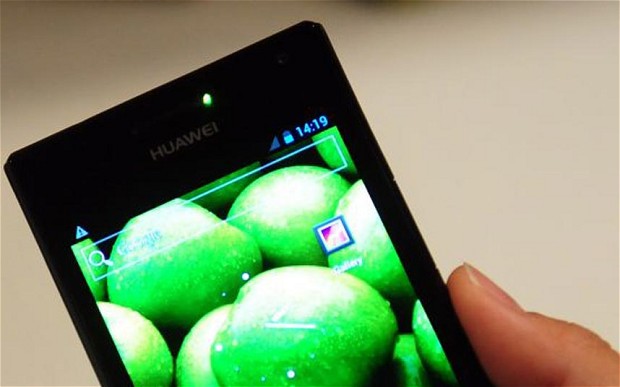Sheikh Mahmoud is the owner of a small book shop in Shubra El Kheima, Qaliubiya. Today, he is struggling with some customers who want to print papers in his shop, but the street where Mahmoud lives and works in has no mobile network coverage. “They want to send the paper to be printed through WhatsApp, and this takes a long time!” he said.
In his speech at the Cairo International Exhibition and Conference on Telecommunication and Information Technology (ICT 2018), President Abdel Fatah Al-Sisi pointed out that the Information and Communications Technology (ICT) sector was given priority via improving and modernising the telecommunications infrastructure, establishing smart cities, and enabling citizens to use digital services. “We are on the right path towards a digital society,” he said.
Al-Sisi emphasised that the purpose of creating a digital society is to provide equal opportunities for citizens to participate in the development process, and to provide innovative digital services that improve operational efficiency, increase productivity as well as the standard of living. Egypt still needs billions of dollars in investment to upgrade its telecommunications infrastructure.
Mahmoud’s customers have to walk outside the street to receive a signal so as to send their papers which he downloads by ADSL service, then they come back to get it, as this street is one of many non-statistical numbers of streets in informal settlements across the country, where houses are built very close to each other thereby weakening the mobile phone signal. Mahmoud hopes that the government’s improvements of telecommunications infrastructure can end his struggle. “We hear about the developments and we want it here too”.
A dream from the future
With a 96 million population, Egypt has more than 100m mobile subscriptions today, compared to less than 10m subscriptions for landlines and fixed broadband services, which makes Egypt one of the largest telecom markets in North Africa, and a promising market for multinational companies.
The government in recent months has attempted to secure billions of dollars in funding to develop technology parks, and to extend broadband availability, and in the process to create jobs in ICT and rekindle international investors’ interest.
Liquid Telecom, a subsidiary of Econet Wireless, singed a partnership deal with Telecom Egypt – of which the state owns 80% stake and the remainder of its shares listed on the Egyptian and London stock markets – to invest $400m in data centres, infrastructure, and financial inclusion in Egypt over the next three years.
The corporation, founded by Zimbabwean billionaire Strive Masiyiwa, has recently completed its extensive ‘Cape to Cairo’ network, which connects 13 African countries with over 60,000 km of fibre optic cabling, the network will play a key role in bringing fibre to the home (FTTH) services to millions of people over the coming years.
Mostafa Abdel Wahed, head of the National Telecommunications Regulatory Authority (NTRA), said at Cairo ICT that the NTRA could start granting 5G frequencies to the country’s four mobile service
providers, Vodafone Egypt, Orange Egypt, Etisalat Misr, and Telecom Egypt, by the beginning of 2020. The world is heading towards the 5G technology era, where countries such as South Korea and the United States have easily moved early to create a testing ground to develop practical uses for this advanced technology, that will add an estimated $565bn to the global economic output over the next 15 years if it was used to connect robots or other applications.
But governments will first need to harmonise standards for granting the so-called millimetre wave spectrum, which can carry the vast data flows needed to power 5G services, the GSMA – the global trade body representing mobile network operators, stated in a recent report. The industry sees potential not just for the connectivity of 5G, but also for other services such as industrial automation, remote surgery,
or virtual meetings, the GSMA added.
Many telecom companies are already auctioning low- and mid-band spectrum for 5G, but it is millimetre wave frequencies of above 6 GHz that are critical to advanced applications thanks to their high data capacity.
Better services
The 4G mobile network service was officially launched in Egypt in September 2017 following many delays, introducing Egyptians to high-speed telecom services, but the country has yet to fully make use of its 4G spectrum, and the service does not completely cover the country.
Bahy Mohamed, a resident in the Sixth of October City, has an unusual issue with the mobile service. He said that the data counter of the company he subscribed in, shows a substantial different gap of the usage. Last month, there was a 5GB gap between his mobile data counter and the company’s data counter.
Ashraf Selim, an Egyptian accountant who works in Dubai, had a similar issue while he was visiting his parents last summer. “In Dubai, I have subscribed to an internet bundle and I have never finished the gigabytes, because I am not a heavy internet user, but when I subscribed to a bundle with the same amount of gigabytes in Egypt, they were gone after 15 days only”.
“I called the customer service and the employee told me that gigabytes in Dubai are different than those in Cairo,” he added.
Both Mohamed and Selim are customers of the same company, Vodafone, which is the largest mobile service provider in the country. Daily News Egypt asked for an official comment from the company’s side, but no comment was sent until the time of publishing of this article. The company website says that it works very hard to provide high-quality service to its customers.
Many Egyptians are not satisfied with the mobile service because of technical issues they face or its high price compared to their income. Yet, Mohamed hopes for better services in the future. “We are in 2018, technology can make miracles become true, and I hope one happens in Egypt soon.”




